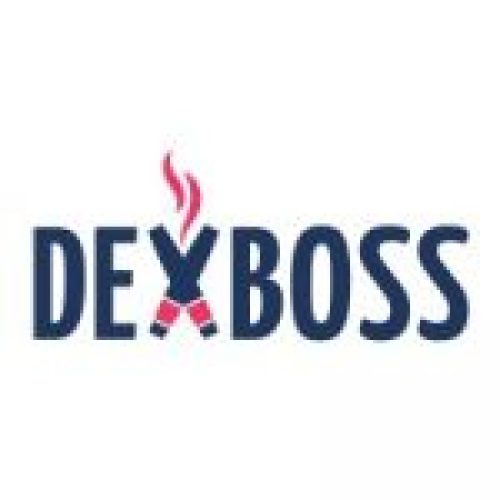Google recently announced a major rebranding of its conversational AI service Bard into Gemini, representing a significant evolution of the company’s Language Model capabilities. This transition from Bard to Gemini promises more benefits through enhanced intelligence, knowledge, speed, and safety.
Let’s analyze Google’s rebranding in depth to understand what Gemini offers, how it improves upon Bard, and why it exemplifies the continued progress of Large Language Models (LLMs). We’ll also look at some remaining challenges and future directions for Google in developing ever more capable and trustworthy AI systems.
Bard to Gemini – Google’s Strategic Rebranding
Soon after OpenAI unveiled its headline-grabbing ChatGPT chatbot in November 2022, Google announced Bard – its alternative conversational AI service to compete with ChatGPT. However, Bard had a rocky debut when it provided an incorrect answer in a company promotional video.
This misstep led Google to cancel Bard’s public launch. It went back to the drawing board to enhance the AI system’s knowledge, safety mechanisms, and capabilities. Just a week after the Bard demo, Google reintroduced the revamped service under a new brand name – ‘Gemini’.
Gemini represents a strategic repositioning and technical overhaul of Google’s conversational AI capabilities. The name change to Gemini signals Google’s goal of establishing a distinct identity from ChatGPT and disassociating from Bard’s erroneous beginnings. Gemini builds upon Bard but incorporates substantially more advanced capabilities.
This rebranding represents a key milestone in Google’s roadmap for developing production-grade Large Language Models that are sufficiently capable, accurate, and trustworthy for public release. The rapid evolution from Bard to Gemini demonstrates Google’s agility and technical prowess in AI – an area it pioneered for decades before the recent resurgence of generative AI.
Introducing Gemini – A Next-Generation LLM
So what exactly is Gemini, how does it improve upon Bard, and why is it superior to alternatives like ChatGPT?
Gemini is powered by a next-generation LLM that makes significant leaps across metrics like size, knowledge, accuracy, conversational ability, and safety:
- Size – Gemini comprises over 20 billion parameters, making it twice as large as Bard’s initial implementation. This expanded capacity enables storing more knowledge and context for generating informative responses.
- Knowledge – Gemini has been fed a much larger dataset spanning diverse web pages, books, and dialogues to build its general knowledge. This helps provide contextual responses grounded in facts.
- Accuracy – Google prioritized enhancing correctness in Gemini, reducing erroneous or misleading responses through techniques like confidence scoring and grounding answers in reputable sources.
- Conversational Ability – Gemini exhibits more natural back-and-forth conversation capabilities like clarification questions instead of just static responses. Its dialogues feel less robotic than predecessors.
- Safety – Gemini incorporates stronger safeguards against harmful, biased or untruthful responses. Google applied learnings from its years of research into responsible AI to prevent potential harms.
Together, these improvements enable Gemini to outperform the capabilities of its Bard predecessor as well as rival systems like ChatGPT in areas like relevance, factual correctness, and natural conversation flow.
While not yet perfect, Gemini represents significant progress for LLMs – many experts have noted it as the most human-seeming conversational AI so far. Google already plans to integrate Gemini across its search, maps, and other products to power more natural assistance.
Driving Fact-Based Responses
A defining focus in developing Gemini is enhancing factuality and avoiding unsupported claims in responses. This is crucial for trustworthiness.
Google employed techniques like:
- External knowledge sources – Gemini supplements its training data with real-time reference data from the web to verify facts and source authoritative information.
- Confidence scoring – Before responding, Gemini estimates a confidence score on its ability to provide a correct answer. Low confidence prompts it to defer to other sources or suggest user confirmation.
- Citation – Gemini can cite its external sources and data for factual assertions it makes to provide transparency into the information’s origin.
- Feedback integration – Google can rapidly fine-tune Gemini’s knowledge and logic based on user feedback data on response accuracy. This continues improving it post-deployment.
- Conversation context – Gemini maintains context across dialogues to keep responses relevant rather than straying off-topic randomly.
Prioritizing accuracy and contextual responses grounded in reality differentiates Gemini from more speculative conversational models like ChatGPT. While not infallible, Gemini represents a major upgrade in an LLM’s capacity to be helpful, harmless, and honest.
Responsible AI Safeguards in Gemini
Given concerns over potential risks from improperly deployed LLMs like toxic speech, Google invested significant efforts into safety for Gemini:
- Content filtering – Added filters block responses that contain harmful, biased, or misleading information identified via techniques like sentiment analysis, toxicity classifiers, and spam/bot detection.
- Training data curation – Google applied extensive curation, filtering and sensitivity reviews when assembling Gemini’s training datasets to limit ingesting inappropriate or imbalanced data.
- Anthropic advisors – Input from external advisory boards like Anthropic’s Constitutional AI improved Gemini’s safety, ethics and alignment with human values.
- Limited domain training – Unlike more open-domain models like ChatGPT, Gemini has been purposefully trained only for conversational assistance, not unrestricted content generation.
- Staged rollout – Gemini is being gradually rolled out for limited test populations first before considering broader access. This enables assessing real-world performance at scale pre-launch.
While AI safety remains an ongoing pursuit, Google’s responsible design choices provide greater assurance of Gemini avoiding harmful failures compared to more openly released LLMs. Ongoing vigilance and development focused on beneficial outcomes will be critical as Gemini gets more widely deployed.
Evolving Google’s Conversational AI Capabilities
The launch of Gemini represents just the first step in Google’s evolving roadmap for conversational AI across its products:
- Search integration – Gemini will progressively augment search to enable more intuitive natural language queries and exploratory multi-turn information seeking instead of just keyword lookups.
- Google Assistant upgrade – The knowledge and conversational capabilities powering Gemini can help advance Google Assistant to become an even smarter virtual assistant.
- YouTube video summarization – Gemini’s skills at distilling and summarizing information can enhance automatically generated video descriptions and chapter markers on YouTube.
- Google Maps integration – More natural dialogue interactions can improve recommendations and discovery in Google Maps by understanding contextual cues and preferences.
- Customization for verticals – Domain-specific versions of Gemini can create better conversational experiences tailored for verticals like healthcare, education, retail, and more.
- Co-piloting with humans – Gemini may evolve co-piloting abilities like prompting human feedback on responses it is unsure of before sending, to uphold information quality.
- Multimodal assistance – Adding sensory capabilities beyond just text to parse images, speech, and other modes of input/output can augment Gemini’s understanding and expression.
The Gemini launch serves as the starting point for embedding conversational AI across Google’s offerings. With continuous improvements to knowledge, reasoning, and safety, its LLMs hold immense potential for transforming information discovery and task assistance.
Challenges and Limitations to Overcome
While marking a major milestone, Gemini does have some key limitations providing opportunities for improvement:
- Fact accuracy still needs reinforcement for many queries, especially involving recent real-world context. Its knowledge lags human expertise in many domains.
- Conversational depth remains limited compared to human interactions. Multi-turn dialogues can deteriorate into confusion or repetition.
- Tone and personality lack richness and variability since Gemini is not an independent agent modeling subjective human nuance.
- Long-form content generation like blog writing or coding remains weak for now compared to short-form queries and summaries.
- Based on publicly shared details, Gemini seems to have limited capabilities leveraging web indexing, search, and knowledge graphs that are Google’s core strengths.
- Integration challenges remain in implementing conversational models smoothly across Google’s portfolio of consumer products.
Addressing these limitations provides an exciting roadmap for Google AI research and engineering teams. Advances in foundation models, reasoning, logic, search integration and multi-agent conversation systems can enable the next leaps in Gemini’s capabilities over time.
The Future of LLMs
The introduction of Gemini underscores how generative AI continues to rapidly evolve, providing glimpse of its future potential:
- Expanding knowledge – Larger, more diverse models and training datasets will empower LLMs with expansive world knowledge and cutting-edge skills spanning domains like science, engineering, law, medicine, and more.
- Human-AI co-creation – Rather than operating autonomously, LLMs will collaborate with people as creative partners, blending machine capabilities like idea generation with human judgment, ethics and reasoning.
- Specialized use cases – Targeted LLMs purpose-built for niche domains using training data from those fields will power applications ranging from computer programming to scientific discovery.
- Multimodal integration – Combining language understanding with computer vision, speech, simulation and other modalities will enable richer context for LLMs when interacting with the real world.
- Trust and transparency – As LLMs integrate further into daily life, progress in explainability, provenance tracking, bias evaluation, and risk assessment will be crucial for maintaining trust.
- Responsible implementation – Careful deployment by applying principles of ethical AI will remain necessary to assess potential harms stemming from misuse and set appropriate constraints.
The technology behind large language models like Gemini remains in its adolescence. But rapid maturation continues, unlocking promising applications while also necessitating diligent oversight. With Google’s firepower and research leadership, Gemini offers a glimpse into the enlightening but often confounding journey ahead in developing LLMs that enhance knowledge and empower humanity.
Google’s launch of Gemini also has significant implications on the competitive landscape for generative AI:
- Versus OpenAI – Gemini shows Google rapidly catching up to OpenAI’s capabilities despite the latter’s multi-year headstart. However, OpenAI’s independent structure may allow more aggressive product iteration.
- Microsoft partnership – With Microsoft investing billions in OpenAI, the integration of models like GPT into Azure cloud services poses a monetization edge for now.
- Big Tech AI race – From Meta to Amazon to Baidu, tech giants are all invested in conversational AI. Unique strengths like search (Google), social graphs (Meta), e-commerce (Amazon) and local data (Baidu) will drive differentiation.
- Startup competition – Well-positioned AI startups like Anthropic, Cohere, Character.ai and others will continue driving cutting-edge LLM innovations catering both to big tech partners and their own products.
- Geopolitical implications – Competition with China also adds urgency for US tech giants to lead in AI given its strategic importance. Chinese firms lag top US companies but are investing heavily.
- Cloud platform differentiation – Major cloud providers will compete to offer optimized infrastructure, APIs and services tailored for training, deploying and managing large language models for enterprises.
With LLMs now established as a pivotal emerging capability, the AI landscape will see intensifying innovation and competition. As a pioneer in modern AI, Google remains well-positioned to lead across research, engineering, ethics and applications of generative models.
Conclusion
The rebranding from Bard to Gemini highlights intensive efforts by Google to rapidly adapt and evolve its conversational AI. While more progress lies ahead, Gemini already showcases substantial improvements that establish Google as a top contender in generative AI.
Key strengths like Gemini’s grounding in factual knowledge, integration of human feedback, and focus on safety are positive indicators. If executed responsibly, Google’s LLMs have immense potential to enhance how humanity accesses, shares and interacts with information and knowledge.
Of course, risks and challenges remain. Maturing conversational AI to be demonstrably helpful, harmless and honest will require sustained research and care. But with its technical prowess and leadership, Google is primed to deliver some of the most extraordinary benefits of LLMs for the collective good. The journey from Bard to Gemini and beyond promises to be one of thoughtful cooperation between humans and machines to uplift knowledge and empower society.



